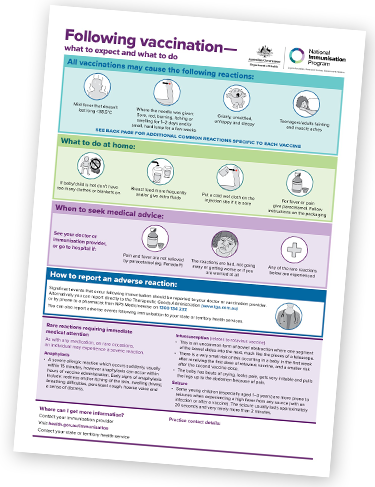What about side-effects?
Key facts
-
Some babies and children feel a little unwell or unsettled for a day or two after vaccination, and then get better, with just a little bit of love and care from you at home.
-
Serious side effects are very rare. When they do occur, it is important for babies and children to get the support they need from healthcare professionals or at a hospital.
